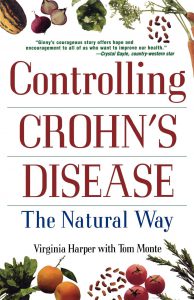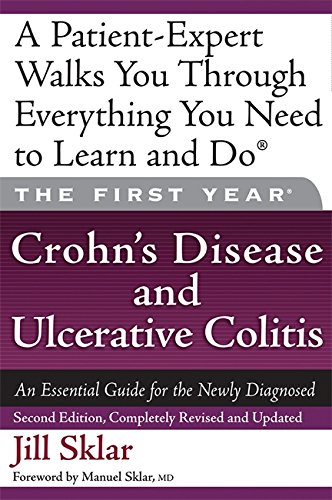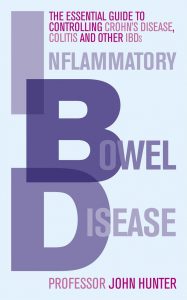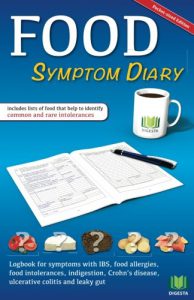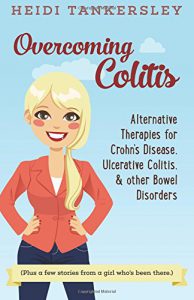Controlling Crohn’s Disease: The Natural Way
Both Crohn’s disease and Diabetes have a profound impact on the lives of patients .
Unfortunately, many people who suffer from Crohn’s disease also have to cope with some form of diabetes.
New research finds that patients who have both diabetes and Crohn’s are six times more likely to require surgery for Crohn’s than patients without diabetes.
Both diseases are chronic, or life-long, and there is no cure for either. But both Crohn’s and diabetes are increasingly diagnosed worldwide for unrelated reasons. Type 2 diabetes is often associated with obesity, while the causes of Crohn’s are still unknown.
Crohn’s disease is a chronic and painful condition attributed to inflammation of the gastrointestinal tract.
People with Crohn’s disease can experience periods of severe symptoms followed by periods of remission that can last for weeks or years. The symptoms of Crohn’s disease depend on where the disease occurs in the bowel and its severity. In general, symptoms can include:
Chronic diarrhea, often bloody and containing mucus or pus
Weight loss
Fever
Abdominal pain and tenderness
Feeling of a mass or fullness in the abdomen
Rectal bleeding
Severe inflammation and obstruction of various parts of the gastrointestinal tract due to swelling and scar formation can cause other problems like bowel perforation, abdominal distension (swelling), severe pain, and fever. This can be life-threatening.
Experts agree that stress can trigger symptom flair-ups, worsen digestive health overall, and increase the chance of experiencing complications.
Of course stress is a part of daily life, and not all stress is going to be within your control, however there’s a lot you can do to reduce your reactions to stressful events. Regular exercise, getting adequate rest, taking time to relax, spending time outdoors, and fostering supportive relationships can make a huge impact.
Diagnosis Of Crohn’s Disease
The First Year: Crohn’s Disease and Ulcerative Colitis: An Essential Guide for the Newly Diagnosed
Your doctor will likely diagnose Crohn’s disease only after ruling out other possible causes for your signs and symptoms. There is no one test to diagnose Crohn’s disease.
Your doctor will likely use a combination of tests to help confirm a diagnosis of Crohn’s disease, including:
Blood Tests
1.Tests for anemia or infection
Your doctor may suggest blood tests to check for anemia — a condition in which there aren’t enough red blood cells to carry adequate oxygen to your tissues — or to check for signs of infection. Expert guidelines do not currently recommend antibody or genetic testing for Crohn’s disease.
2.Fecal occult blood test
You may need to provide a stool sample so that your doctor can test for hidden (occult) blood in your stool.
Procedures
1.Colonoscopy
This test allows your doctor to view your entire colon and the very end of your ileum (terminal ileum) using a thin, flexible, lighted tube with an attached camera. During the procedure, your doctor can also take small samples of tissue (biopsy) for laboratory analysis, which may help confirm a diagnosis. Clusters of inflammatory cells called granulomas, if present, help confirm the diagnosis of Crohn’s.
2.Computerized tomography (CT)
You may have a CT scan — a special X-ray technique that provides more detail than a standard X-ray does. This test looks at the entire bowel as well as at tissues outside the bowel. CT enterography is a special CT scan that provides better images of the small bowel. This test has replaced barium X-rays in many medical centers.
3.Magnetic resonance imaging (MRI)
An MRI scanner uses a magnetic field and radio waves to create detailed images of organs and tissues. MRI is particularly useful for evaluating a fistula around the anal area (pelvic MRI) or the small intestine (MR enterography).
4.Capsule endoscopy
For this test, you swallow a capsule that has a camera in it. The camera takes pictures of your small intestine, which are transmitted to a recorder you wear on your belt. The images are then downloaded to a computer, displayed on a monitor and checked for signs of Crohn’s disease. The camera exits your body painlessly in your stool. You may still need endoscopy with biopsy to confirm the diagnosis of Crohn’s disease.
5.Balloon-assisted enteroscopy
For this test, a scope is used in conjunction with a device called an overtube. This enables the doctor to look further into the small bowel where standard endoscopes don’t reach. This technique is useful when capsule endoscopy shows abnormalities, but the diagnosis is still in question.
Treatments For Crohn’s Disease
There is currently no cure for Crohn’s disease, and there is no one treatment that works for everyone. The goal of medical treatment is to reduce the inflammation that triggers your signs and symptoms. It is also to improve long-term prognosis by limiting complications. In the best cases, this may lead not only to symptom relief but also to long-term remission.
Treatment might involve drugs, nutritional supplements, surgery, or a combination of these therapies. Treatment choices depend upon where the disease is located and how severe it is. They also depend on the complications associated with the disease and the way the person has responded in the past to treatment when symptoms recurred.
There are several types of drugs used to treat Crohn’s disease. The first step usually involves reducing inflammation.
Many people are first treated with sulfasalazine (Azulfidine). Mesalamine (Asacol, Canasa, Pentasa) or 5-ASA medication.Oral 5-aminosalicylates have been widely used in the past but now are generally considered of limited benefit.
Corticosteroids such as prednisone are another class of drugs that reduce inflammation. A doctor is likely to prescribe an initial large dose of prednisone when the disease is very active. The dose is then tapered off.
A problem with corticosteroids is the large number of possible side effects — some of them serious — such as a higher susceptibility to infection and stomach ulcers.
Crohn’s disease may also be treated with drugs that stop the immune system from causing inflammation. Immunomodulators change the way the immune system behaves. Immunosuppressants decrease the activity of the immune system. Immunostimulators increase the activity. Immunosuppressants prescribed for Crohn’s disease include:
azathioprine ( Azasan, Imuran)
cyclosporine
6-mercaptopurine (6MP, Purinethol)
tacrolimus (Prograf)
Methotrexate (MTX, Rheumatrex, Trexall)
Other substances that may be prescribed to treat Crohn’s include:
1.Antibiotics to treat bacterial infections and overgrowth of bacteria in the small intestine; types of antibiotics commonly prescribed include:
ampicillin (Omnipen)
cephalosporins
fluoroquinolones (Ciprofloxacin)
metronidazole (Flagyl)
sulfonamides
tetracycline
2.Antidiarrheal agents to stop diarrhea.A fiber supplement, such as psyllium powder (Metamucil) or methylcellulose (Citrucel), can help relieve mild to moderate diarrhea by adding bulk to your stool. For more severe diarrhea, loperamide (Imodium A-D) may be effective.
3.Fluid replacements to counteract dehydration.
4.Nutritional supplements to provide the nutrients that may not be absorbing properly.If you have chronic intestinal bleeding, you may develop iron deficiency anemia and need to take iron supplements.
Crohn’s disease can cause vitamin B-12 deficiency. Vitamin B-12 helps prevent anemia, promotes normal growth and development, and is essential for proper nerve function.
Crohn’s disease and steroids used to treat it can increase your risk of osteoporosis, so you may need to take a calcium supplement with added vitamin D.
If diet and lifestyle changes, drug therapy, or other treatments don’t relieve your signs and symptoms, your doctor may recommend surgery. Nearly half of those with Crohn’s disease will require at least one surgery. However, surgery does not cure Crohn’s disease.
During surgery, your surgeon removes a damaged portion of your digestive tract and then reconnects the healthy sections. Surgery may also be used to close fistulas and drain abscesses.
The benefits of surgery for Crohn’s disease are usually temporary. The disease often recurs, frequently near the reconnected tissue. The best approach is to follow surgery with medication to minimize the risk of recurrence.
Natural Theraphy For Crohn’s Disease
Crohn’s disease treatment, the natural way, involves making a number of scientifically proven changes to your lifestyle and diet.Natural treatments are sometimes called alternative, complementary, or integrative medicine.
Here are some of the top ways you can start healing your body and improve Crohn’s disease symptoms the natural way.
Crohn’s Disease Diet
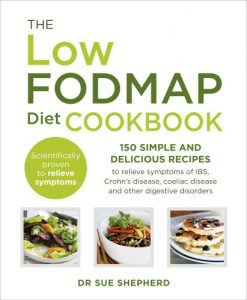
The Low-FODMAP Diet Cookbook: 150 simple and delicious recipes to relieve symptoms of IBS, Crohn’s disease, coeliac disease and other digestive disorders
There is no scientifically proven diet for inflammatory bowel disease. Most experts believe, though, that some patients can identify specific foods that trigger their gastrointestinal symptoms, particularly during disease flares.
By avoiding your “trigger foods,” you may find that your symptoms of gas, bloating, abdominal pain, cramping, and diarrhea are more manageable. At the same time, you will give your inflamed intestines time to heal.
Many people with Crohn’s disease find that one or more of the foods on the following list aggravate symptoms during disease flares. It’s possible that at least some of these listed foods will trigger your symptoms:
1.alcohol (mixed drinks, beer, wine)
2.butter, mayonnaise, margarine, oils
3.carbonated beverages
4.coffee, tea, chocolate
5.corn husks
6.dairy products (if lactose intolerant)
7.fatty foods (fried foods)
8.foods high in fiber
9.gas-producing foods (lentils, beans, legumes, cabbage, broccoli, onions)
10.nuts and seeds (peanut butter, other nut butters)
11.raw fruits
12.raw vegetables
13.red meat and pork
14.spicy foods
15.whole grains and bran
Keeping track of the foods you eat each day can help you identify the “offenders” — foods that may trigger symptoms. Avoiding these foods, especially when your disease is active, may give you better control of the symptoms.
You can also use a daily food diary to help you and your doctor determine if you’re getting a properly balanced diet. It can show whether you are getting enough protein, carbohydrates, fats, and water. It can also show whether you are getting enough calories to maintain your weight and energy.
To start your diary, record the foods you eat each day and the serving sizes in a small notebook. Enter the date, food, and any symptoms you might feel after eating this food in the notebook.
If you want to avoid a Crohn’s disease flare-up, it’s best to stop overloading your body with over-sized meals. By eating smaller meals you put less stress on the gastrointestinal tract, which can help reduce some Crohn’s symptoms like bloating, gas and cramping.
You can try eating smaller meals more often throughout the day, rather than 2-3 big meals, to help with absorption of nutrients, improving energy and controlling symptoms.
It’s possible to lose a high amount of fluid due to frequent diarrhea. Make sure to drink at least 7 glasses of plain water per day. Caffeine-free herbal tea, bone broth and kombucha are also good choices, since these not only provide water but also electrolytes, amino acids and probiotics.
Artificial sweeteners increase the presence of Proteobacteria — microbe bacteria found in E. coli, Salmonella and Legionaelles — in individuals suffering from Chrohn’s or other inflammatory bowel diseases and is the primary cause of increased white blood cell enzymes in the gut. About 10–15 percent of Chrohn’s patients report that sweeteners worsen their disease.
Avoiding alcohol, caffeine, and tobacco may also ease symptoms.
Consuming more prebiotics, a special form of dietary fiber that promotes the growth of healthy bacteria (probiotics) which combat bad bacteria, is a smart idea for people with Crohn’s disease.
Prebiotic foods include things like asparagus, bananas, honey and oats, all of which make excellent addition to any Crohn’s disease diet.
However because prebiotics are a type of fiber, it’s important to monitor your systems and pay attention to how you feel. If particular prebiotic foods, or foods high in fiber, are causing worsened symptoms then try replacing with other foods until you find what works.
Ask your doctor or dietitian about vitamin and mineral supplementation. For example, many people with Crohn’s disease have a vitamin D deficiency.
Zinc is needed to repair intestinal cells damaged by Crohn’s disease. Supplementation may offset some of the deficiency caused by Crohn’s-related malabsorption.
Bromelain is a mix of enzymes present in pineapples that helps break down proteins. It also has anti-inflammatory properties. Animal studies have found that it can ward off proinflammatory cells which play a part in gut inflammation.
Snacking on pineapples may help ease the inflammation associated with Crohn’s disease. But since they contain both insoluble fiber and fructose, some people may not tolerate pineapples well. If you find that pineapples trigger symptoms, bromelain supplements can be considered instead.
There is evidence that some people with Crohn’s disease may benefit from a high-calorie liquid diet, particularly during a flare. By giving the intestines a much needed rest, the liquid diet can help suppress symptoms of Crohn’s disease.
In addition, the liquid diet or special high-calorie liquid formulas can help people with Crohn’s who need extra nutrition short-term or those whose intestines cannot absorb proper nutrition from whole foods.
Spiced lentil soup This is gorgeous and warming and the bowl is packed full of B vitamins and magnesium. SERVES 1–2 1 large red onion, finely chopped 2 garlic cloves, finely chopped 1 tbsp olive oil sea salt and freshly ground black pepper ½ tsp ground cumin ½ tsp turmeric 1 tsp ground cinnamon 150g red lentils 100g Puy lentils 800ml vegetable stock (you may not need all of this)
Sauté the onion and garlic in the olive oil with a good pinch of sea salt, until the onion has softened. Stir in the spices. Add the lentils and enough stock to cover. Simmer until the Puy lentils are cooked. These will take longer to cook than the red lentils, which will virtually fall apart. I advise that you keep topping up the stock in order to maintain your desired thickness, as the mix will inevitably thicken as the red lentils cook down. Taste for seasoning and serve.
Your gastrointestinal tract contains “good” bacteria, which help with digestion and offer protection against “bad” bacteria. If you’ve taken antibiotics or have an illness, you may not have a sufficient supply of the good bacteria.
Probiotics are living microorganisms that you can consume. They are found in certain foods or you can take probiotic supplements. They act very much like the good bacteria in your gut. Probiotics may be more or less beneficial depending on the location and stage of your disease. Some strains might work for one person but not others.
Although yogurt is one of the most common sources of probiotics, many people with Crohn’s disease are sensitive to dairy products. Other foods that contain probiotics include sauerkraut, kimchi, kefir and kombucha.

Probiotics have been shown to help people with Crohn’s disease reduce the incidence of diarrhea. A good probiotic also encourages enhanced synthesis of vitamin B12 (studies suggest people with Crohn’s often suffer from vitamin B12 deficiency and/or folate deficiency), and support digestion of difficult substances like gluten and lactose.
If you decide to try probiotics, talk to your doctor first.
Herbal and Botanical Treatments
There are some herbal and botanical treatments that may help ease the symptoms of Crohn’s disease. These include:
Slippery elm — Slippery elm is an herbal remedy and demulcent (a substance that protects irritated tissues and promotes their healing). It contains mucilage, a substance that becomes a slick gel when mixed with water. This mucilage coats and soothes the mouth, throat, stomach and intestines, making it excellent at calming Crohn’s flare-ups.
Curcumin — With anti-inflammatory properties, studies have found that people with inflammatory bowel disease who took curcumin reduced their symptoms and their need for medicines. Various clinical studies have suggested that curcumin might be a potential candidate for the prevention and/or treatment of a variety of colonic diseases, such as ulcerative colitis, Crohn’s disease and colonic cancer.
Glutamine — Glutamine is an amino acid found in the body that that helps the intestine function properly. Since it’s good for overall intestinal health, it can offer help for Crohn’s. It’s best to take glutamine on an empty stomach.
Omega-3 fatty acids — Omega-3s like those found in fish oil can help fight inflammation and reduce the chances of recurrence of Crohn’s. Studies have been mixed, but some sufferers find omega-3s to be helpful.
Green Tea-Green tea has many health-promoting benefits for Crohn’s disease due to its anti-inflammatory, anti-carcinogenic and antioxidant properties. Plus, green tea has a positive impact on the immune system, and even reduces the risk of colon cancer.
Chamomile and peppermint tea are beneficial for gas, colic, and diarrhea that come with Crohn’s disease. They help to soothe the lining of the stomach and intestines and to reduce spasms in these parts of the body that lead to symptoms. Warm tea infusions of chamomile or lemon balm should be taken frequently.
Spearmint oil is used to treat diarrhea, gas, indigestion, nausea, gastrointestinal tract spasms, bile duct and gallbladder swelling (inflammation) gallstones, and irritable bowel syndrome.
Frankincense essential oil — Frankincense essential oil speeds up the secretion of digestive enzymes, increases urination production, relaxes the muscles of the digestive tract and also helps to improve circulation.
Overall, it improves digestive health and has been shown to be beneficial in reducing symptoms of Crohn’s disease as well as leaky gut syndrome, chronic colitis, ulcerative colitis and IBS.
Add one to two drops of oil to eight ounces of water or to a tablespoon of honey for relief. If you’re going to ingest it orally, make sure it’s 100 percent pure oil, and don’t ingest fragrance or perfume oils.
Lemongrass essential oil — Lemongrass essential oil can help relieve pain from gas irritation in the stomach and bowels. Lemongrass has anti-inflammatory properties that come from the limonene that’s present.
Inflammation is associated with just about every health condition, including Crohn’s disease, and since lemongrass fights inflammation, it makes a great addition to any Crohn’s disease diet.
Adding one to two drops of lemongrass oil or infused lemongrass water to your tea or soup can treat stomach pains, nausea and diarrhea.
Again, talk to you doctor before trying any herbal or botanical treatments. Some can interact dangerously with medications you might be taking. They may also have undesirable side effects.
Balancing Your Hormones
If you have had Crohn’s disease symptoms for longer than a year, or if you have taken any kind of steroid or immune suppressant drug, then it is highly likely your thyroid gland is not functioning properly, and quite likely your adrenal gland isn’t either. Ideally, you should see a doctor who specializes in hormone balancing and have your endocrine system (glands that produce hormones) tested properly.
You should then follow a natural hormone supplement program tailored to your specific needs.
For more great Health and Nutrition Tips refer to the website positivehealthwellness.com.
As always, it’s a good idea to talk to your doctor about any other therapies you’re considering. Some therapies may work well in conjunction with the medical treatments you currently use. Others may interact dangerously with your medical treatments.
Refer to our article Using Herbal Remedies Safely!
If you have any information,questions, or feedback you would like to include in this post.
Please email momo19@diabetessupportsite.com or leave your comments below.
